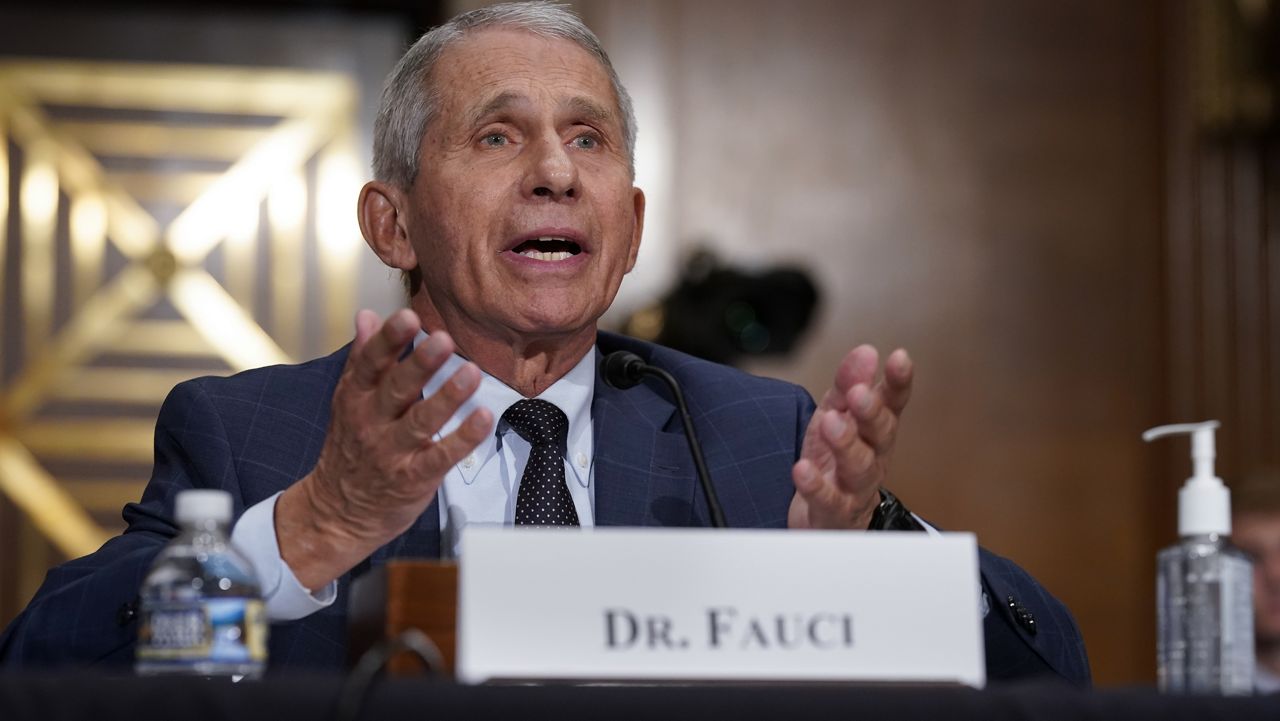As COVID-19 cases continue to rise nationwide, fueled largely by the highly contagious delta variant, the nation's top infectious disease expert warned in a new interview that an even more deadly strain could be possible.
Dr. Anthony Fauci, the director of the National Institute of Allergy and Infectious Diseases and chief medical advisor to the president, said in an interview with McClatchy Wednesday that the virus is being given "ample" time to morph into a more dangerous variant.
"If another one comes along that has an equally high capability of transmitting but also is much more severe, then we could really be in trouble," Fauci said. “People who are not getting vaccinated mistakenly think it’s only about them. But it isn’t. It’s about everybody else, also.”
As the virus continues to spread in unvaccinated parts of the country, it has more opportunities to mutate, opening up the possibility that it could evade vaccines.
"What we’re seeing, because of this increase in transmissibility, and because we have about 93 million people in this country who are eligible to get vaccinated who don’t get vaccinated — that you have a significant pool of vulnerable people," Dr. Fauci said.
The NIAID director said "we're very fortunate" that the vaccines perform well against the delta variant.
"If we don’t crush the outbreak to the point of getting the overwhelming proportion of the population vaccinated, then what will happen is the virus will continue to smolder through the fall into the winter, giving it ample chance to get a variant which, quite frankly, we’re very lucky that the vaccines that we have now do very well against the variants — particularly against severe illness."
"There could be a variant that’s lingering out there that can push aside delta," he added.
Fauci reiterated those concerns in an interview on ABC News' "Good Morning America" Thursday, noting that the U.S. will see more variants that evade vaccines if the country does not get a handle on community spread.
"That will happen," Dr. Fauci told "GMA" anchor George Stephanopoulos, "if we don't get good control over the community spread, which is the reason why I and my colleagues keep saying and over again, it is very important to get as many people vaccinated as we possibly can."
"People who say, 'I don't want to get vaccinated because it's me and I'll worry about me, I'm not having any impact on anybody else,' that's just not the case," he added.
"And when you give it ample opportunity to mutate, you may sooner or later get another variant, and it is possible that that variant might be in some respects worse than the already very difficult variant we're dealing with now, which is a major reason why you want to completely suppress the circulation of the virus in the community," he said.
Dr. Fauci also warned that the U.S. could see as many as 200,000 COVID cases per day in the fall.
"Remember, just a couple of months ago, we were having about 10,000 cases a day," Fauci said. "I think you’re likely going to wind up somewhere between 100,000 and 200,000 cases."
As of Aug. 3, the current 7-day moving average of cases is 89,463, according to data from the Centers for Disease Control and Prevention.
Dr. Fauci told McClatchy that he hopes full Food and Drug Administration approval of the vaccines from Pfizer-BioNTech and Moderna will go a long way toward combatting vaccine hesitancy, but warned that a "bump" in vaccination rates will not immediately blunt the surge in COVID cases.
"Even if we vaccinated everyone today, we’re not going to see an effect until the middle to end of September," he said.



